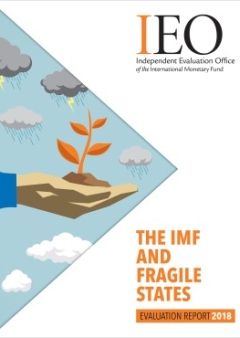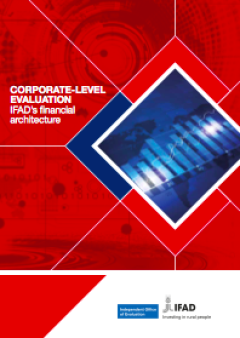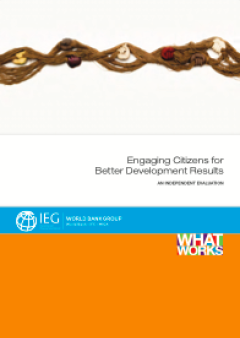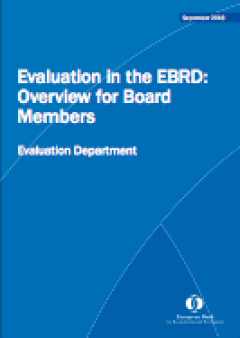

Documents
Member's Documents
The Review investigates key issues around the stated intentions and expectations of the 2013 Energy Sector Strategy; how it reflected/integrated transition challenges and developed operational priorities; were clear and measurable goals established; were critical execution issues addressed…
Member's Documents
This study examines the extent to which SEFFs have met objectives and contributed to transition impact, and suggests ways to enhance performance going forward.
Member's Documents
This evaluation assesses the IMF’s engagement with countries in fragile and conflict-affected situations (FCS). Helping these countries has been deemed an international priority because of their own great needs and the dangerous implications of persistent fragility for regional and global…
Member's Documents
The overarching purpose of the corporate-level evaluation on IFAD’s financial architecture is to independently assess how IFAD creates value for Member States through sound investment decisions and financial strategies contributing to rural poverty reduction. This is the first evaluation of…
Member's Documents
This evaluation assesses how effectively the WBG has mainstreamed citizen engagement at the project, country and corporate levels and demonstrates how this process contributes to the achievement of development outcomes
Member's Documents
This primer is intended to introduce Board members to evaluation at the EBRD. It provides a brief overview of the independent Evaluation Department’s (EvD’s) role, activities, organisational context and products. It also sets out the key responsibilities of Board members and Bank Management…
Document Type:
Filter By Member:
- Office of Evaluation and Oversight, Inter-American Development Bank (120)
- Independent Evaluation Department, European Bank for Reconstruction and Development (98)
- Independent Development Evaluation, African Development Bank (79)
- Independent Office of Evaluation, International Fund for Agricultural Development (67)
- Independent Evaluation Group (IEG), World Bank Group (46)
- Independent Evaluation Department, Asian Development Bank (42)
- Evaluation (EV), European Investment Bank (41)
- Independent Evaluation Office, Global Environment Facility (36)
- Independent Evaluation Department, Islamic Development Bank (24)
- Independent Evaluation Office of the International Monetary Fund (23)
- Independent Evaluation Office, New Development Bank (7)
- United Nations Evaluation Group (UNEG) (2)
- OECD-DAC Evaluation Network (1)



